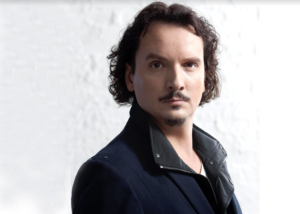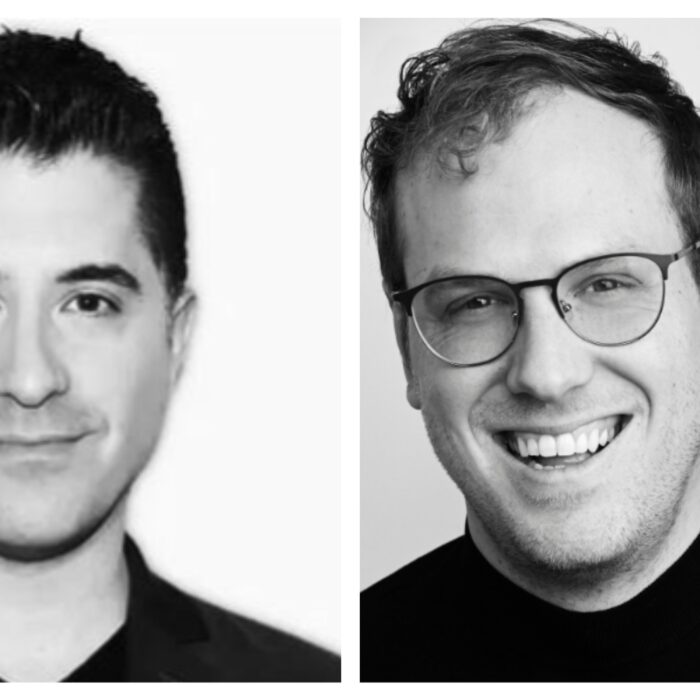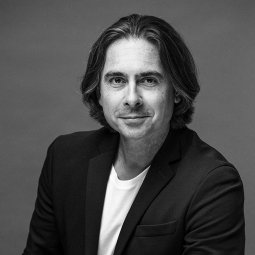
Interview: Baritone Artur Rucinski on Returning to the Stage, His Vocal Technique & Why He Loves Verdi
By Mauricio VillaAs the theaters in Europe started to reopen amid the COVID-19, one of the most hotly anticipated productions of the summer season was the Teatro Real de Madrid’s “La Traviata.”
The company planned to perform the opera dozens of times over a single month with several casts. Among the artists to open the production was baritone Artur Rucinski, a Polish artist with worldwide recognition for his interpretation of the Verdi repertory. He is known for his ample breathing technique and spotless vocal elegance.
Throughout the run of “Traviata,” OperaWire had the opportunity of speaking with several artists from the production, including Rucinski. In this interview, the baritone expounded on singing Verdi roles, his approach, to technique, and how he views his future career progression. He also had a special message for his colleagues.
OperaWire: Coming from such a strong musical background, why did you decide to become an opera singer?
Artur Rucinski: Up until high school I had never imagined that I would become an opera singer. As a child, I played violin, I spent a short time at a ballet school and then studied oboe at the high school. But when I realized that I will not be a great Oboist, I decided to do something different with my life.
I had a good voice then but I was still trying to decide a future career. At first, I was thinking about Jazz music or pop but finally, I passed an audition at the Music Warsaw high school at Bednarska Street in Warsaw, and it was then that someone told me I had a strong voice and I should consider a go for Opera singing. That was the beginning. After half a year, I won an opera competition in Poland. I was lucky to meet a very good teacher who was a great polish tenor at the school Jerzy Knetig. And that was only in the first year.
After that, it became my passion and I felt comfortable in the operatic world. And so I moved to the Music Academy, currently known as the Music University of Warsaw, as I continued my work with Jerzy Knetig.
During my studies, I met a Bulgarian tenor Kaludi Kaludov who gave me a strong foundation for technique, and incredible knowledge about how to find more energy in my voice and how to focus this power, which I have improved and developed on my own. And now I have become a teacher myself.
OW: Does this amazing breathing technique that you have come from your teachers or is it something that you researched and developed on your own?
AR: Music was present at my house when I was a child as my parents were singing and dancing in a folk group called Mazowsze which was very famous during the Iron Curtain era because they traveled around the world with their shows. Sometimes they included Italian canzonettas, songs from around the world which I usually sang at home along with them. And I later discovered that what I have learned in my childhood was how to focus the energy in my voice and how to use resonance and how not to lose air during the phrases.
Then, playing oboe gave me a strong appoggiatura which at the same time became a problem when I started singing opera. Because oboe has a small hole to blow air through, you need a strong pressure of air which becomes excessive for singing. I realized then that body does not need such an amount of oxygen for functioning, so I started singing phrases for as long as I could in one breath, and after years of practicing you really feel the difference. And it is really hard work, you cannot and should not see that hard work on stage, but the secret is training.
OW: Why do think is important, artistically speaking, to be able to sing long phrases?
AR: First of all the most important thing to me is listening to the music and knowing the character. Who is this person that is singing that aria or phrase in that precise moment? What do you want to express through your voice and your acting? Of course, the beauty of singing is the most important for Opera but it has to be combined with strong real emotions when playing a character. That is why I consider this profession is so wonderful and why it has become my passion. You are dealing with real emotions and life. And even if I am singing “Trovatore” or “Traviata” or “Lucia di Lammermoor” for the 50th time, I always try to look for something new in the character.
And these long phrases are not to make an effect. Verdi wrote those long phrases and melodies full of passion and emotion, and I think I can express more through legato if I manage not to cut the words and the sentences, not to make a quick breath because I cannot hold it more but to keep the long-phrase sul fiato and sing bel canto.
Nowadays there is a tendency to sing everything, and not all the singers are ready for some kind of repertoire. As a result, after a few years, vocal problems start to appear. But with a strong technique and understanding of what you are singing about during the night makes the real beauty of this profession. And it is important, as well, to feel the connection with the audience, identifying if what I try to express is connecting. I always try to be deeply involved so people don’t get the idea that I try to fake or pretend, I am always in the action.
OW: Does this mean that you might accept or decline a role because of the character and not only the music?
AR: Of course. I was offered Don Giovanni and Simon Boccanegra at the beginning of my career, and I said: “No, I will sing them when I am much older.” And when I sang Don Giovanni for the first time about six years ago, people asked how long I had been singing the role, and it was my debut. But I was ready, I was mature enough, had more vital experience and also the voice in perfect condition for this role. I was comfortable with the tessitura. That is why I will not sing Verdi’s dramatic or father roles until I am past 46, 47.

OW: But you are singing Germont in La Traviata right now.
AR: Yes, but there is a general misconception about this role. Germont is actually around his 40s while Alfredo is in his early 20s. Also, Germont is a lyric role. In productions, they use to put grey hair on me because sometimes my colleague who are singing Alfredo are even older than I am.
Of course, I will sing Rigoletto and Simone, but first I have sung “I masnadieri,” “Ernani,” “Trovatore,” “Luisa Miller,” “Attila,” “Falstaff,” or now in the near future I’ll sing “Macbeth,” “Ballo in Maschera,” “Don Carlo.”
Honestly, what will I sing when I will be over 50 if I will sing all these roles now? This is my opinion. I know my way, I am happy where I am, I can choose the roles that I sing, and I feel very fortunate and look into the future in a very optimistic way.
OW: Germont is not the largest, hardest, or highest Verdi baritone role. What are the challenges for you when perform this role right now?
AR: Just because I have become a father myself in recent years, I have discovered that Germont is full of doubts. He listens to what Violetta says and understands her, He is not only a selfish person looking for the sake of his family. He realizes during his conversation with Violetta that she has really strong feelings for his son. But he cannot accept the fact that she began her social life as a courtesan, looking for some powerful wealthy men who will set her in society.
So, it is important for me to find different colors and more softness towards her. And in the aria “Di Provenza” I am always trying to portray and express my real love for my son as a father. So, I confront the role differently because I am a different person, I have changed through parenthood. And we are human beings, so everything around us affects us, and we must add something of our own in what maestro Verdi already wrote, something from our hearts and souls so people can feel it. I believe that people can hear and feel what you have in your heart, as a human being, when you are performing on stage. That’s why, coming back to the question of the long phrases, I sing these long lines, because people can feel it, and after all, you sing for an audience. People hear it and they like it in my voice, and it has a meaning, not for the special effect but the beauty of this art. And then again it is hard work and we have to be in good shape, we are athletes. Because it is easy to sing when you feel well, but you have to deal with sickness, tiredness, stress… and you need to know what you are doing and respect your voice.
OW: Do you consider Verdi’s opera to be the most adequate repertoire for you?
AR: Yes, through all his music and characters I can express what is best in my voice. Also, I try to sing Mozart every two years, either “Le Nozze” or “Don Giovanni” to keep the voice fresh and healthy. I also have “Onegin” as part of my repertoire, and some Bel canto roles. I would love to include Riccardo from “I Puritani” into my repertoire. But I am not the kind of singer who wants to sing everything that has been written. I like to focus on about 15 roles.
OW: Would you consider Wagner or Strauss?
AR: No, not really, although I like their music. But it is also because I don’t speak German, and honestly, I want to be perfect and not pretend. That’s why I also barely sing French repertoire. I don’t speak the language and I need to understand what I am singing, as well as the rhythm of the language. And there are already some wonderful colleagues’ who are experts in Wagner and Strauss.
OW: You have become a fixture at the Teatro Real. You debuted with “Lucia” in 2018, sang “Trovatore” in 2019, you are closing this season with “Traviata,” before opening the next one with “Ballo in Maschera.”
AR: I feel very comfortable with Teatro Real and with the people working in this wonderful theater and in the city of Madrid itself. I also feel like Spain is my second home. I have plans to invest some of my earnings here.
But honestly, I feel great everywhere, even if it is London, New York, Paris or Milano. I sing for the people and I appreciate that people love my art and come to see me. And I feel very lucky that my job is my passion and that I also have a loving family, which is the most important thing for me. The good thing about singing in Europe is that I can go home for a couple of days between performances and have some time regularly with my kids. When I am far, after two weeks I feel miserable and want to quit this job because I miss them so much.
OW: Is there any specific role that you would like to debut?
AR: As I said before: Rigoletto, Simone, Macbeth, but they will come. I am happy with what I am singing at the moment. I always try to sing better and better and you can only do that when you focus on a certain number of roles. You are only as good as your last performance, so this is a process that never ends. I cannot presume that I know everything about the technique of my voice.
Every day I’m trying to improve something in my voice and interpretation. Your body and your voice change; you are a human being and lots of external factors can affect your instrument. Even when I am teaching I learn a lot about myself because I can hear, I can see, and we are all individuals – there is not a single method. But there is only one technique, the good one. The thing is how to connect and explain to your students when all is based on internal feelings and imagination.
OW: The last few months have been challenging. Are there any special messages you would like to send colleagues in these trying times?
AR: I would like to send my greetings to all my colleagues, and tell them to be hopeful for the future. That we will be able to work again and also that all the theatres understand that this is important to all the artists to be on the stage and also for the audience who is missing real-life performances. And let’s pray that we will be able to control this virus and stay healthy and safe.
I also want to remind the governments that they should support the arts, that this is important. I understand that in a critical situation it is important to provide and invest in primary needs like food, health care, but if we don’t have the arts then humanity has no future, and governments should be conscious especially at this moment when we are workless.


